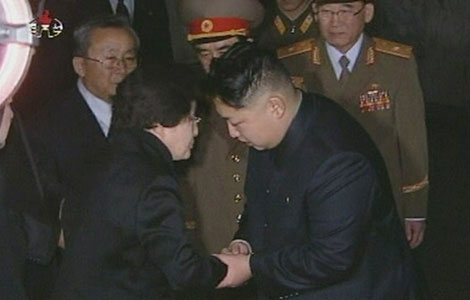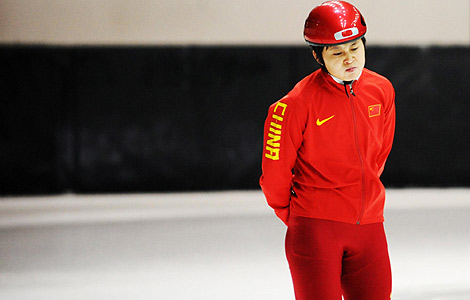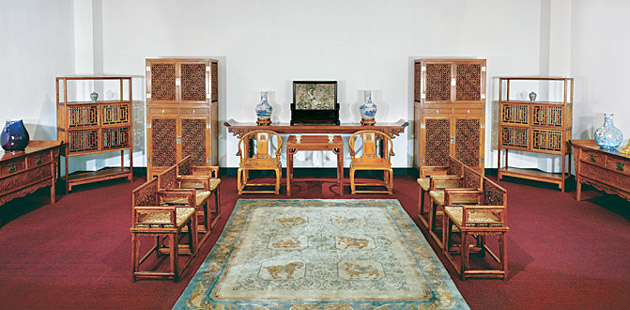China stresses quick response to grievances
Updated: 2011-12-27 23:10
(Xinhua)
|
|||||||||||
GUANGZHOU - In the wake of a pair of violent protests that rocked south China for a week, senior officials in the region said they have learned protests can be best defused by immediately looking into the people's grievances and refraining from the use of force.
"It is imperative for us to improve our work in response to complaints and claims from the people as ideas of democracy, equality and rights are taking root among the public," said Zhu Mingguo, vice secretary of the Guangdong provincial committee of the Communist Party of China, at a recent stability maintenance workshop.
Zhu compared the poorly-run villages to apples that are rotten inside.
"The skin is red, but it's rotten to the core. Once the skin breaks, the consequences will be severe," Zhu said, adding that the recent series of protests broke out in the "model villages," where grudges are boiling under the apparently calm surface.
He warned that local officials should "have zero tolerance" toward the issues that residents complained most about and address matters without delay.
"We need to resolve issues of people's immediate interests and concerns in a timely manner," Zhu said. "We need to improve the conflict resolution mechanism to provide channels for people to freely express their concerns."
Zhu is the key government official who initiated the negotiations to end violent protests and a tense stand-off between police and residents in the village of Wukan.
Since September, complaints had escalated about land use, financing, and elections of village heads, prompting the villagers of Wukan to hold sometimes violent demonstrations in the city of Lufeng, which administers Wukan.
Earlier this month, police blocked off the exit from the village to intercept protesting villagers, whose anger was reignited by the sudden death of a villager representative while in police custody.
The powder keg was not defused until last Thursday when Zhu, in a direct dialogue with villagers, admitted that the protesting villagers' main requests were reasonable and promised a "fair and open" investigation into the grievances.
Zhu said the villagers' complaints focused on land use problems and the lack of transparency in the governance of village affairs, and that it was particularly intolerable that village officials secretly sell farmland.
"If the complaint is fairly addressed in the first place, would things boil up like this?" Zhu told officials attending the workshop on Monday.
He urged local officials to use microblogs and online chat services, as well as traditional home visits to hear people's complaints.
Meanwhile, the provincial police chief noted that the government should be cautious in calling on police to quell protests.
He said authorities should refrain from using police force, weaponry, and detection and, instead, try to use political wisdom and improve the art of using tactics to deal with protests.
China has seen a surge of protests this year, particularly in the country's wealthy coastal areas, based on a variety of concerns ranging from pollution to land seizures, and disputes with law enforcement to corruption. With stability highly prized by society, authorities have been urged to change the modes of governance to address increasing protests.
Guo Weiqing, a professor at Sun Yat-sen University, said China's economic and social changes have created more social problems and lowered the firing point for restive public emotion.
Some local governments' ways of responding to crises, however, have been out-dated, including cover-ups and suppression of mass incidents, Guo said.
Such improper measures have often turned a peaceful airing of grievances into a violent confrontation, he said.
"A confrontation with the government was never our aim. What we want is to have our land back," a Wukan villager surnamed Chen said.
Hot Topics
HIV/AIDS, Egypt protest, Thanksgiving, climate change, global economic recovery, home prices, high-speed railways, school bus safety, Libya situation, Weekly photos
Editor's Picks

|

|

|

|

|

|







